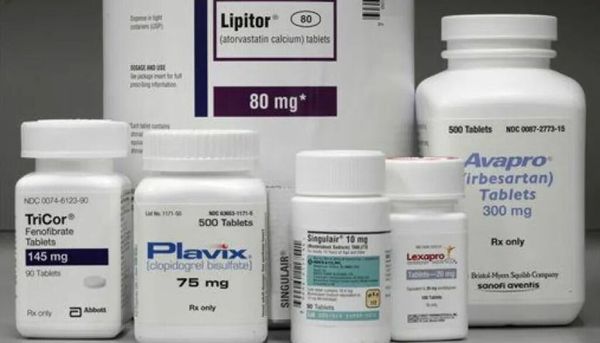
The Inflation Reduction Act, signed into law by President Joe Biden, is being hailed for fighting climate change, expanding healthcare coverage and reducing the deficit. It does all of that. But for millions of Americans, perhaps the most welcome part of that new law is that it will reduce the cost of prescription drugs under Medicare.
During nearly six years in Congress, I have heard many complaints from constituents about the high price of the prescription drugs they need. Some tell me that they sometimes must choose between paying for their drugs or their groceries. Others skip their doses, or take half-doses, to keep the cost down.
What good are these life-saving prescription medications if those who need them are unable to afford them?
Drug companies often respond by suggesting that limiting the cost of medications will prevent them from investing in developing new ones. But this ignores two important facts.
First, many big drug companies are making huge profits. Second, many of their new drugs result from research funded by taxpayers. Shouldn’t the public receive a return on that investment?
A proven way to reduce the cost of drugs is by allowing the government to negotiate prices with the drug companies. The Veterans Administration has done this successfully for years, reducing drug costs for the government as well as for individual veterans. Yet Congress has refused to allow the government to negotiate drug prices for Medicare recipients — until now.
Under the Inflation Reduction Act, the secretary of the U.S. Department of Health and Human Services will use Medicare’s enormous buying power to negotiate lower prescription prices from drug companies for Medicare beneficiaries, lowering prices for seniors and people with disabilities.
Beginning in 2026, the HHS secretary will be authorized to negotiate discounted prices for additional medications each year. By 2029, more than 60 drugs will be subject to lower prices through Medicare.
The new law will also cap out-of-pocket prescription drug costs for Medicare recipients at $2,000 per year, and beginning next year, it caps their insulin costs at $35 per month. This will provide critical relief to millions of Medicare recipients who are running up enormous expenses for the prescription drugs they need.
Clearly, the big drug companies were never going to provide this relief on their own. So far in 2022, Big Pharma has hiked the price of 1,186 drugs. Many of those increases have been made under the guise of inflation, whether it affects the cost of producing the drugs or not.
To prevent this price-gouging, the Inflation Reduction Act includes a provision requiring drug manufacturers to pay a rebate to Medicare if they increase their prices faster than the rate of inflation.
While the new law is a huge step in the right direction, there is more Congress can do to make prescription drugs more affordable. For example, the $35 monthly cap on insulin applies only to Medicare recipients and not to millions of other Americans who rely on that life-saving medication. Congress should pass a separate bill to apply that cap to those who pay for their insulin through private insurers.
Another way to reduce prescription drug prices for everyone is to reduce the period during which drug companies can exclusively market their biologic drugs. Manufacturers now maintain patent exclusivity for 12 years, allowing them to enjoy billions in profits with no competition, even though American taxpayers funded much of their research and development of these new drugs.
I’m sponsoring a bipartisan bill, the PRICED Act, to cut this exclusivity period from 12 years to five. Just as allowing Medicare to negotiate lowers prices, the PRICED Act would accelerate competition and use market forces to reduce prices.
All of us appreciate the advances in health care afforded by prescription drugs. But they need to be affordable to be effective. The Inflation Reduction Act, along with extending the insulin price cap and increasing competition among biologics, will ensure that millions more Americans will be able to afford the prescription drugs they need and, in many cases, paid to develop. That’s a win for everyone.
U.S. Rep. Raja Krishnamoorthi, D-Schaumburg, chairs the House Subcommittee on Economic and Consumer Policy.










